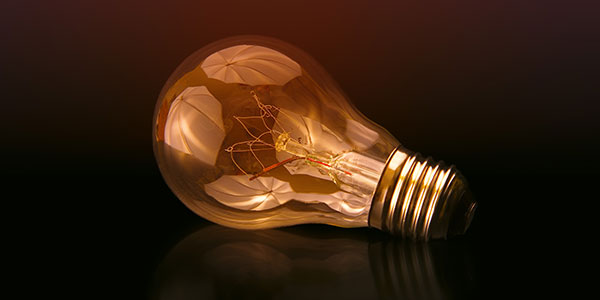7 Simple Tips To Totally Refreshing Your Buy Fakes Legally
본문
Navigating the Fine Line: Buying Fakes Legally
In an elaborately woven tapestry of consumer culture, the practice of acquiring counterfeit goods has actually become a contentious subject. This post will dig into the nuances of purchasing fakes legally, checking out ethical factors to consider, legality, and possible avenues through which people can obtain reproduction items without entering the murky waters of legality.

Comprehending the Legal Landscape
The legality of acquiring fake goods largely depends upon the jurisdiction and the motives behind the purchase. In lots of nations, counterfeit items are specifically prohibited, particularly if they are planned for resale or commercial use. However, buying a replica for individual usage can inhabit a gray location. Here's a breakdown of this complex landscape:
What's Legal?
Replica Items for Personal Use: In some cases, individuals might purchase reproduction for individual pleasure-- consider clothing, devices, or home design. Such purchases are usually legal, especially if the objective is not to mislead others about the origin of the product.
Customized Goods: Some makers and craftsmens create products that are motivated by popular brands without infringing on trademarks. These items frequently have their own distinct styles and do not bear the brand's logo.
Art and Performance: In the art world, reproduction and inspired pieces are often accepted and celebrated, offered they are not presented as original works.

What's Illegal?
Hallmark Infringement: Selling products that are stealthily comparable to a brand name's trademarked products can result in legal consequences.
Misleading Consumers: If purchasers present fake goods as authentic products to others, they can deal with legal obstacles, particularly in terms of scams.
Resale of Counterfeit Goods: Reselling fake items-- irrespective of how they were originally gotten-- is generally prohibited and can attract substantial charges.
The Ethical Debate
While it may be technically legal to acquire replicas for personal usage, the ethical implications can not be overlooked. The production of counterfeit products typically makes use of labor laws, environmental policies, and fair trade principles. Therefore, individuals considering such purchases need to reflect on the broader impact of their options.
Considerations Before Buying Fakes
Labor Practices: Understand where and how the reproduction is produced. Numerous counterfeit items come from factories that engage in poor labor practices.
Ecological Impact: Counterfeit products typically make use of materials that are hazardous and not sustainably sourced, impacting the environment negatively.
Customer Choices: Buyers should consider the message their purchases send to brand names and merchants. Supporting counterfeit markets can undermine legitimate services.
Ways to Buy Legally and Ethically
With a clearer understanding of the legal and ethical ramifications of purchasing fakes, consumers can browse this landscape more successfully. Here are some methods to buy reproduction or inspired products without contravening of the law:
1. Shop from Authorized Reproductions
Lots of brands produce their own line of duplicated products as a method to offer more budget-friendly alternatives while maintaining quality. These licensed recreations are normally offered through reputable retailers.
2. Explore Alternative Brands
Rather than purchasing fakes, customers can search for alternative brand names that provide similar designs at lower prices. Numerous fashion-forward brand names produce inspired styles that echo the visual appeals of luxury goods without the hefty price tag.
3. See Local Markets and Artisan Shows
Local artisans frequently create inspired pieces that catch the essence of high-end brands without infringing on copyright. Supporting regional craftspeople can be an excellent way to take pleasure in similar styles while remaining ethical.
4. Online Marketplaces
Specific online marketplace platforms permit sellers to use handmade, special styles that do not infringe on trademarks. Services such as Etsy and Redbubble enable craftsmens to offer creations that are influenced by popular trends without directly imitating brand name logos.
Regularly Asked Questions (FAQs)
Q1: Is it prohibited to buy fake items for personal usage?
A: While the legality can vary depending upon the location, purchasing fake products for personal usage is frequently legal. However, presenting these products as authentic can result in legal effects.
Q2: What are the dangers of purchasing counterfeit items?
A: Risks include supporting unethical labor practices and prospective legal consequences if the products are misrepresented. In addition, counterfeit products frequently do not have the quality and qualitatives Falschgeld Bestellen sturdiness of genuine goods.
Q3: How can I recognize licensed reproductions versus counterfeits?
A: Research brands and check their main websites for information on authorized reproductions. Search for quality signs and service warranty information that might separate authorized items from fakes.
Q4: Are there any legal consequences for purchasing fakes?
A: Generally, purchasing fakes for personal use isn't greatly punished. Nevertheless, misrepresenting these products or reselling them can cause legal actions, including financial fines and confiscation of products.
In conclusion, the world of buying fakes legally is marked by a web of intricacies including legality, principles, and customer options. While there are paths that enable individuals to take pleasure in replica products without crossing ethical lines, it's vital for customers to remain conscious of the ramifications and implications of their purchases. By choosing ethical options, exploring authorized replicas, and supporting regional craftsmens, purchasers can delight in their desire for luxury-inspired styles responsibly.


댓글목록 0